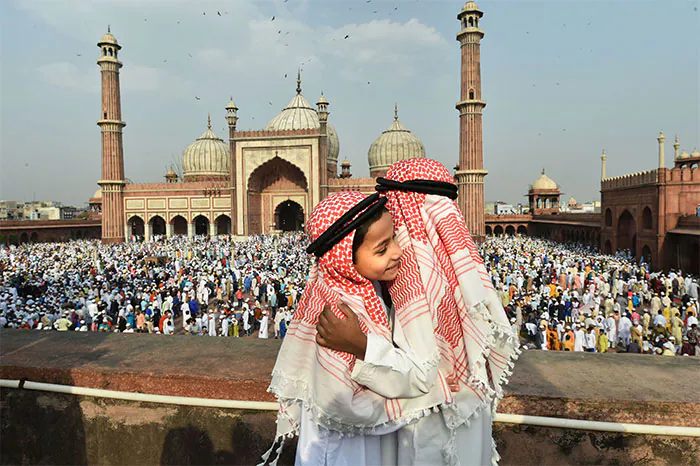
Is a significant Islamic holiday that marks the end of Ramadan, the holy month of fasting. This joyous occasion brings together Muslims from all over the world to celebrate with prayers, feasting, and acts of charity. In this comprehensive blog, we’ll delve into the date, history, significance, and traditions associated with Eid-ul-Fitr, providing you with everything you need to know about this special Islamic festival and its celebrations in 2024.
Date of Eid-ul-Fitr 2024: Eid-ul-Fitr is celebrated on the first day of Shawwal, the tenth month of the Islamic lunar calendar. The exact date of Eid-ul-Fitr varies each year as it depends on the sighting of the new moon, which marks the end of Ramadan. In 2024, Eid-ul-Fitr is expected to be observed on Tuesday, 21st May, subject to the sighting of the moon.
History and Significance: Eid-ul-Fitr holds great historical and religious significance in Islam. It is believed that the Prophet Muhammad received revelations from Allah (God) through the Angel Gabriel, which were compiled into the holy book of Islam, the Quran. The month of Ramadan commemorates the first revelation of the Quran to Prophet Muhammad.
Fasting during Ramadan is considered one of the Five Pillars of Islam, and it is obligatory for adult Muslims, except for those who are ill, pregnant, breastfeeding, menstruating, or traveling. The fast begins at dawn and ends at sunset, with Muslims abstaining from food, drink, smoking, and other physical needs during daylight hours. Fasting is not just about refraining from food and drink; it is also a time for self-reflection, spiritual growth, empathy, and charitable acts.
Eid-ul-Fitr marks the end of Ramadan and the beginning of Shawwal, a month of celebration and gratitude. The festival is a time for Muslims to express their gratitude to Allah for the strength and patience to observe fasting throughout Ramadan. It is also a time for forgiveness, reconciliation, and strengthening bonds with family, friends, and the community.
Eid-ul-Fitr Celebrations: The celebrations of Eid-ul-Fitr begin with the special Eid prayer known as “Salat al-Eid,” which is performed in congregation at mosques or open prayer grounds. The prayer is usually followed by a sermon (khutbah) emphasizing the importance of piety, gratitude, and community.
One of the defining aspects of Eid-ul-Fitr is the communal feast that follows the Eid prayer, known as “Eid al-Fitr.” Families and friends come together to enjoy delicious meals, sweets, and traditional dishes. It is customary to exchange gifts, especially new clothes, and give charity (zakat al-fitr) to the less fortunate to ensure everyone can partake in the festivities.
Decorations, lights, and vibrant clothing add to the festive atmosphere of Eid-ul-Fitr. Many Muslims also visit the graves of deceased loved ones during Eid-ul-Fitr to offer prayers and seek blessings for the departed souls.
Conclusion: Eid-ul-Fitr is a time of joy, unity, and spiritual renewal for Muslims worldwide. It symbolizes the triumph of self-discipline, devotion, and compassion over worldly desires. As Muslims come together to celebrate Eid-ul-Fitr in 2024, let us embrace the values of peace, kindness, and generosity that this auspicious occasion signifies. Eid Mubarak to all!


Golf Grass
Golf Grass Golf Grass, the natural looking artificial grass for all commercial golf courses are…

Hospitality chair
Hospitality chairs Decon’s complete range of hospitality chairs for all premium commercial grade chairs for…

